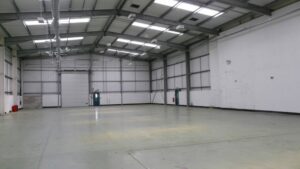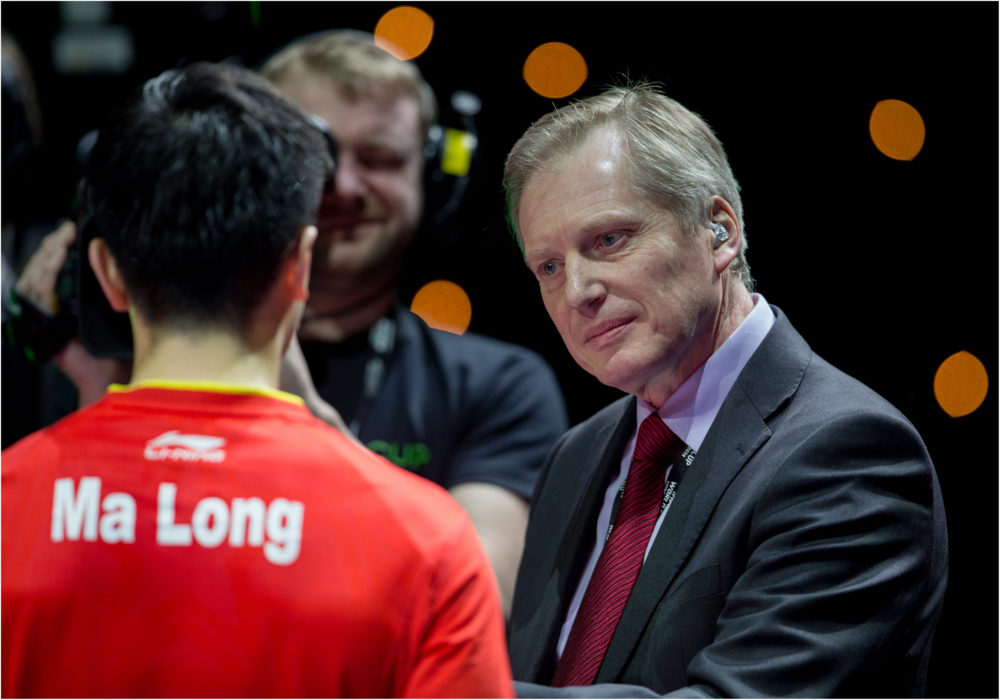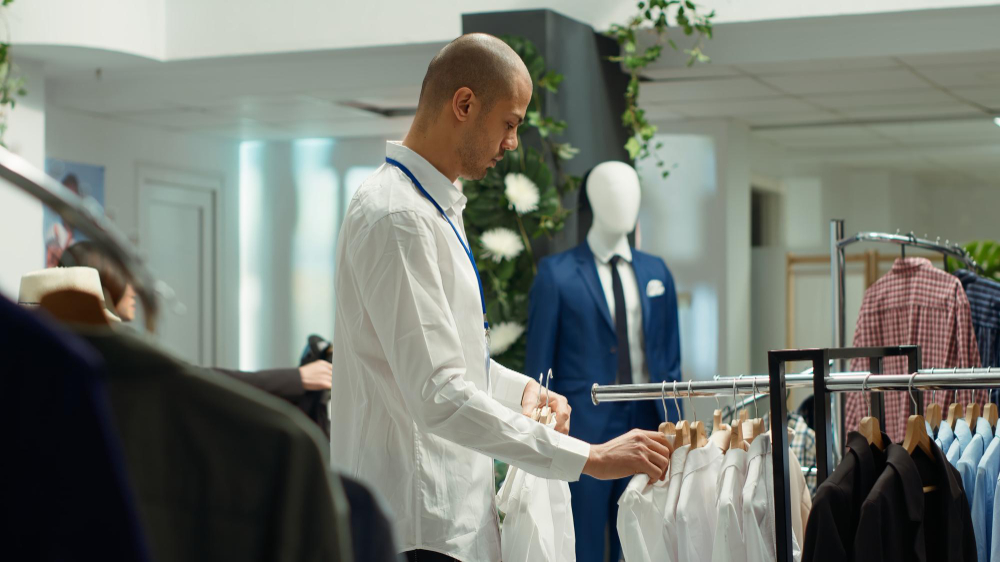Setting up a social enterprise has its challenges, particularly when it comes to finding space, funding and attracting customers.
It is entirely possible and incredibly rewarding when you get it right, though.
To find out more about how it’s done – and its ongoing challenges – Small Business spoke to double Commonwealth medal-winning table tennis player, Colin Wilson. He explains how he set up his table tennis centre, Corby Smash.
Why did you want to set up Corby Smash?
Firstly, I wanted to see whether you could make a table tennis centre which was full service – providing for beginners, disabled people and people with mental health issues, right up to developing international players.
Getting a long tenure is a challenge I’m also keen to take on. We’d rather that than be based in a community centre where the next April it can be taken away and transformed into something different.
The third reason is that I wanted to see if the centre can break even. Is it financially sustainable in the long-term? If successful, it could be replicated by other table tennis fanatics or entrepreneurs. The participation and membership of table tennis could increase ten-fold.
Take-up of table tennis is lower because of a lack of facilities – as a sport, we’ve lost 60pc of our facilities in the UK over 40 years. It’s been a slow but inexorable decline of a couple of percentage points year on year. That means there’s less table tennis available even though the people who do play it love it.
Many think that there isn’t a facility problem because you can set table tennis up anywhere: on a kitchen table, in the back garden or by renting a place at a sports centre.
‘As a sport, we’ve lost 60pc of our facilities in the UK over 40 years’
The other side of the coin is that a table tennis set-up is very easy to get rid of. If you play on the kitchen table and pack it away for guests who are coming over for dinner, they won’t even know it’s happened. It can be an (unintentionally) secret activity.
Contrast that with swimming or athletics – if there is a decision that we’re going to build a swimming pool or an athletics stadium, that’s a massive investment. But once it’s there, the facility isn’t going anywhere. In Corby we have an Olympic-sized swimming pool – if it loses money, the council and others will be motivated to put more in. They wouldn’t want something so obvious to fail and make it look like they made a bad decision. You have all sorts of reasons to support it and keep it going.
In short: the bigger the investment and the physicality, the bigger the reason to keep it going.
What difficulties did you have in setting up Corby Smash?
You’ve got the usual issues around finding a suitable property (it took us about four months), identifying a suitable person to run the project with me, sorting leases and getting planning permission.

The cost of financing the operation upfront was troublesome – we needed six figures and experienced inevitable delays at various points. What we thought would take us four months took us 12. In this process you’re leaking money and time.
What was it like securing funding?
It was quite easy as I took it on with a sole trader mindset. I have a lot of experience in table tennis and I’m a management consultant.
I got £2,500 from the grant, Growing Corby, to help buy the flooring. It’s the actual flooring from the 2014 Commonwealth Games in Glasgow. It cost a lot more than £2,500 but the funding was very helpful. A grant of £31,500 from Table Tennis England helped with refurbishment and I put in £86,000. There were also loans, cashing in the pension, things like that.
Because I was putting the investment in myself, I needed to maintain decision-making authority. I didn’t want a voluntary committee over my head which may be a) inexpert and b) slow to operate, taking decisions out of my hands when it’s my money at risk.
Having said that, we wrote into our constitution that we’re non-profit and that the directors never take dividends. That’s made it a non-profit and a social enterprise.
Are you still working on the side?
Yeah – I don’t take anything out of the business, except occasionally a little bit to repay director’s loans. I don’t take salary, either.
The coaching that I do is all at the club. I do self-employed work outside of table tennis to maintain me. The problem is that I put so much time into this that I end up underemployed trying to earn a living. My personal finances have taken a hit.
Running a social enterprise is rewarding, granted you can handle the uncertainty and the stress; I started with two full-time staff to build it up, and now I’m down to two part-time.
What are your main outgoings?
Our main outgoings are the fixed costs of rent; management service charges and rates; and energy costs. You need to see a table tennis ball brightly which calls for 1000 lux of light in the hall. As a result, our lighting bill is over £100 a week. We’re trying to move to LEDs but don’t have the money to make the change. We’re caught in the usual trap: we’d save over £200 a month if we switched but we can’t afford to do it yet!
We have a gas heater and because the roof is metal, meaning that heating costs can be well into three figures per month over winter. Put that all together and you’ve got almost £35,000 of overheads before marketing. Our other expenses are standard: entry fees, office supplies, all the usual additional costs.
People are spending around £5 an hour to play – it’s a big task to make those £5 payments add up to the overheads we need, but we did.
We’re one of the higher-cost, higher-quality places. Table tennis is normally cheap and cheerful, but the low-quality, low-cost model has led to decline. Asking £5 per occasional user isn’t a lot.

Corby is a fast-growing town with 55,000 people, but’s it’s not high-end. Even then, the people who come recreationally think that £10 an hour per court between them isn’t much. It’s worked better than expected for attracting new people than it has for experienced players. The difficulty is pulling in enough of them, especially at day times and Sundays.
How do you manage cash flow?
I started off knowing that I would be making operating losses because I wanted to create as much revenue as possible.
Marketing efforts are not profitable, but they do grow the business. We’re losing money to start off because we’re putting money into growing. Every six months I do a re-lean exercise and I pull out all the costs I can so that we can to get close to breaking even.
‘Marketing efforts are not profitable, but they do grow the business’
We use BBX which enables us to sell our unused products. Each court is like a hotel room, making it similar to a hotel room model. We can sell unused rooms in BBX currency which lets us purchase things we need from the BBX community. For instance, I’ve got a complete fire management system using the currency which I got by making purchases from other BBX people.
What are your business goals over the next five years?
We have a new landlord and my immediate responsibility is to build a good relationship with him so that he’ll want to keep us and potentially save us from downsizing.
The difficulty with these sorts of commercial lets is that you only deal with them through their agent. The lack of a direct relationship with a landlord on a commercial lease means you must work harder to maintain that relationship.
On top of that, we need to maintain break even without me having to put in so many voluntary hours myself so I can earn a living outside the centre. We’re working on it all the time and experiencing slow growth. If we stay in survival mode long enough, we’ll get to a point in August 2020 when we repay our business loans.
That would give us another five years on the lease without those business loans as an overhead, helping to make us sustainable and grow through the second half of our lease.
What advice would you give to entrepreneurs setting up a social enterprise?
Firstly, recognise that you’ll overestimate demand for your business. Then there are the delays in setting up which costs a lot of money even if it doesn’t look like it. Initially you’ve got to be three times as well financed than you expect. If you don’t, you’ll probably run out of cash.





